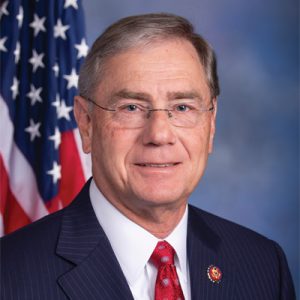The court losses for the CFPB are stacking up. The latest came on September 8, when a federal judge in Texas issued a final judgment against the CFPB for unlawfully expanding its authority when updating the UDAAP manual. In the manual, the Bureau attempted to redefine “unfair,” allowing itself to use the term liberally and take punitive action against supposed perpetrators.
According to the court, the unelected bureaucrats of the CFPB cannot grow their powers beyond what Congress has determined necessary. The increased power Director Rohit Chopra attempted to gain violated the agency’s statutory authority under the Dodd-Frank Act. The court reiterated that the Bureau’s funding violates the Appropriations Clause of the Constitution. Therefore, rules promulgated using the unconstitutional funding may not go into effect.
It is important to note that the court also determined the CFPB’s agenda would have significant economic implications for the financial services industry, potentially costing American companies millions of dollars per year. While this administration, particularly the bureau, has no problem running up costs on American businesses, they have a statutory duty to perform a cost-benefit analysis on proposed rules and make them public.
The CFPB continues to latch on to arbitrary standards that allow the bureau to inflict penalties on a case-by-case basis and potentially target companies and individuals the director has a personal vendetta against.
This issue arose last March in a Financial Services Committee meeting over the topic of the CFPB’s so-called “junk fees.” The bureau rolled out an aggressive plan to tackle these fees without consideration for existing laws or even consensus between regulators and industries. As a few of our expert witnesses pointed out, the term “junk fees” does not exist in the financial lexicon and is not legally enforceable.
Creating a murky definition and a flashy soundbite does not make for good policy. Director Chopra has chosen to regulate by press release, unfounded white papers and the threat of enforcement action instead of through rulemaking governed by the Administrative Procedures Act (APA), which allows for public notice-and-comment on proposed rules and gives regulative entities the opportunity to provide feedback. His refusal to adhere to the APA is one of the reasons he keeps losing in court.
You may remember the Bureau’s attempt to reinterpret the Equal Credit Opportunity Act, which relates to housing applicants, to apply to individuals before they apply for a mortgage. This, again, was an attempt to apply an unmeasurable standard to a term so their ability to go after businesses would be nearly unlimited. A District Court in Chicago struck down that overreach in February of this year.
And of course, last year, a federal appeals court ruled the CFPB’s funding structure itself is unconstitutional. The Supreme Court is scheduled to hear that case in October, with the decision likely coming in the spring. As I’ve said before, I’m looking forward to enacting major reforms at the bureau if the court rules its funding must come from Congress.
Despite numerous losses, you can bet the Bureau and Chopra will keep going. Even if half of their actions get stopped, the other half will go into place. Chopra has made his disdain for our financial system very clear. When his actions affect your business, pay close attention, ask questions and push back. And of course, don’t hesitate to contact me. There is a good chance they’re overstepping their legal boundaries.








